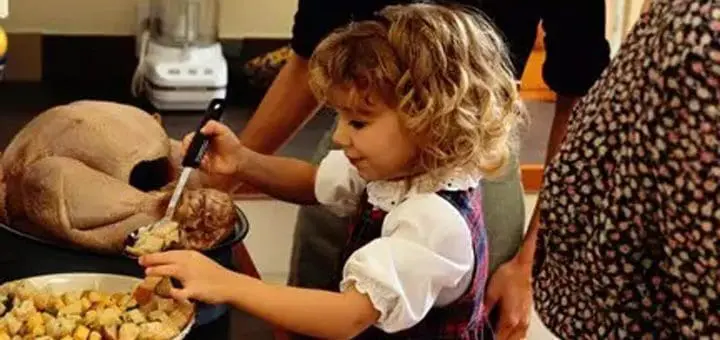Surviving the Holidays

The holiday season is often challenging for most of us. For our family members with special needs, it is even more stressful. We need to employ all of our “social thinking skills” during this season when we are attending parties, family gatherings, shopping, traveling, etc. How can we do this gracefully and comfortably?
What are social skills anyway? I prefer to think of using social skills as “social thinking” or using my “flexible” thinking brain. Social thinking, as defined by Michelle Winner, SLP, is the ability to adapt effectively to the people and situations around us. (www.socialthinking.com) These are ever changing, so we can’t teach our children exactly what to do in each situation, as no two situations are the same! Social skills are not really “skills”, but rather the ability to employ “flexible thinking” across environments. If our social perception is impaired, or if we have sensory challenges, this flexibility in thinking about others can be exceptionally difficult. Below are some tips/reminders to use during this busy and exciting time of year.
1. Set a Routine
At all costs, employ a routine when there is no routine. Many of our children’s lives are turned upside down. They are out of their normal routine, ie., school is closed, guests are visiting, we are traveling to strange surroundings. As the parent, it is your job to set a routine for the days of “no routine”. For example: keep consistent mealtimes, employ a regular bedtime. Use your social thinking to think “how might my child feel with his/her disrupted routine.
2. Use Visual Strategies
Telling what will happen by using pictures or written words will help greatly to build predictability. No surprises is the best way of thinking. Do not assume that when you tell your child what will happen, they will remember. VISUAL is the key word.
Create lists for bedtime, what to take in the car, places you’ll visit.
- Create travel books-showing the sequence of the day’s events
- Provide schedules
- Give choices
- Build in rewards
- (See usevisualstrategies.com for specifics on creating visual schedules.)
3. Take Your Time
In preparing for new events, give yourself extra time to get ready and get going. For example, going to see Santa can be exciting for some, and it can be a scary nightmare for others. Using visual strategies and talking about events well in advance can help to ease anxiety. Use pictures and role play to get your child ready for the experience. Write social stories
(www.carolgray.com) about what is most likely going to occur.
Talk about the possibilities (e.g., long line, lots of people) to prepare for being flexible.
4. Don’t Ask For Performance
Do not ask your child to perform for relatives. Since they are already “stressed “ by all the changes of the season, allow them to “be”. Don’t ask them to “Show Grandma how you….”
5. Reduce Questions And Increase Comments
For example, instead of saying, “What did you get for Christmas? Tell Uncle Joe!” You can say “Uncle Joe, Tommy got a new Lego construction set and a Star Wars shirt for Christmas.” Be flexible and proud that your child has the stamina to just be with the family!
6. Prepare Relatives And Friends
Describe possible behaviors. Do this in a gentle, matter of fact manner. Describe your child’s challenges. You do not need to be apologetic. Your acceptance and coping will lead to their acceptance and flexible thinking. You can suggest ways that others might help to make things easier for your special needs child.
7. Allow Respite From The Excitement.
Do not insist that your child be “in the center” of the action at all times. It may be more comfortable for them to be with “the family”, for example, for short periods of time with respites to a “safe space”. Watch for their tolerance level.
8. Familiarity Breeds Comfort
Take along familiar foods, toys, objects, music, etc. Do whatever is necessary to help your loved feel safe, secure and loved.
You know what to do! These are simply reminders to keep you and your family members, even your typical children, ready for having a happy, safe and loving holiday season. By adapting to each setting, thinking about how others might be feeling or thinking, you will be using your “social thinking”.
Challenge yourself to be flexible, loving and supportive of yourself and others. How can you adapt to your situation and surroundings. What are others thinking in the same situation? It is my hope that this will make the holidays all that you wish they would be!!
Websites to help you through:
https://www.parentingspecialneeds.org/article/holiday-help-things-i-found-to-be-helpful/
https://www.parentingspecialneeds.org/article/enjoy-holiday-special-needs-child/
You May Also Like
- Holiday Help Things I Found to Be Helpful!
- Enjoy Your Holiday with Your Special Needs Child
- Gifting Holidays: Overcoming Challenges and Promoting Enjoyment
- ‘Tis the Season’ How Do Parents Cope and What Can You Do to Help Your Child?
- Keep the Holidays Happy: The Do’s and Don’ts for Talking with Family and Friends
- It’s the Most Wonderful Time of the Year… Or Is It?
- Teaching Gratitude How to Teach Your Child Thankfulness
- Keep the Holidays Happy: The Do’s and Don’ts for Talking with Family and Friends
- Managing Holiday Stress for You and Your Family
- Surviving the Holidays
- 8 Tips to prepare your family members with special needs for the Holiday Season?
- Socialize Successfully: A Few Simple Tips to Help You During the Holiday Season
- Thanksgiving: A Perfect Time to Learn How to Set the Table



i wish my mom had this when she was raising me and my two younger brothers. I’m forever Frankie Guardian angel.